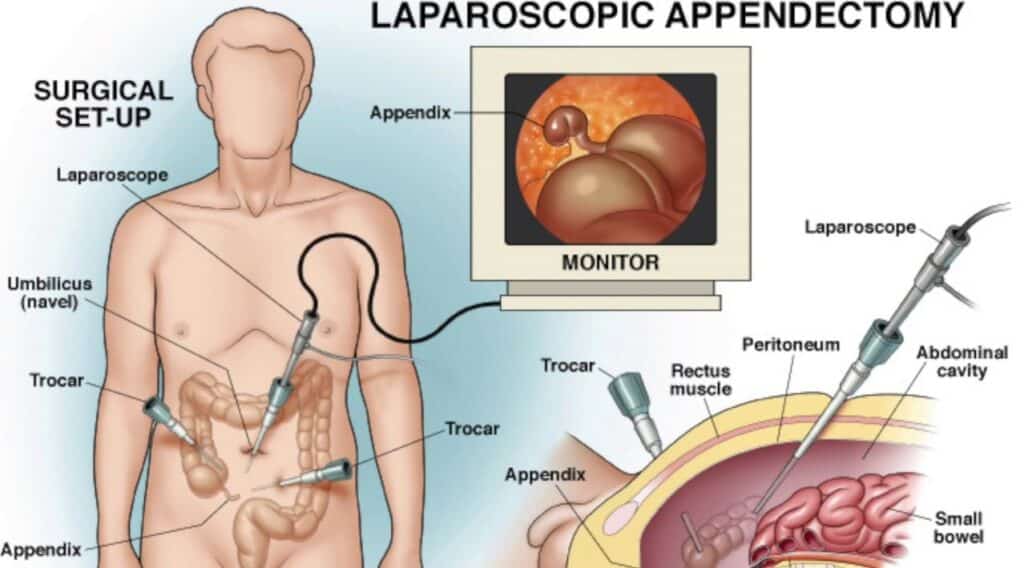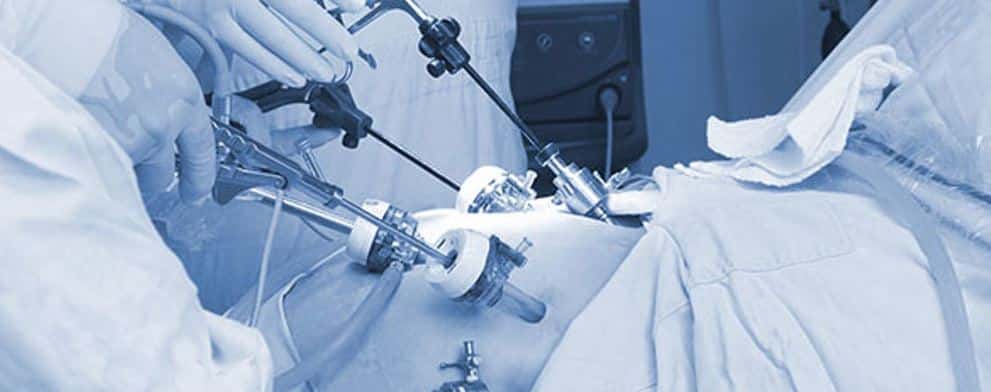Laparoscopic obesity surgery in Egypt with Dr. Ibrahim Kamel – Learn about the benefits, risks, procedures, and costs of weight loss surgery in Cairo.
Obesity is a global epidemic affecting millions of people. In Egypt, the need for effective weight-loss solutions is rising—especially among people who have tried diet and exercise without success. One of the most effective solutions today is laparoscopic obesity surgery. With advanced techniques and experienced professionals like Dr. Ibrahim Kamel, patients can now achieve real, sustainable weight loss results.
In this article, we’ll dive into the world of laparoscopic bariatric surgery, specifically focusing on its advantages, disadvantages, and associated costs in Egypt, with insights from Dr. Ibrahim Kamel, a leading expert in the field.
Introduction to Laparoscopic Obesity Surgery
Laparoscopic obesity surgery—also known as minimally invasive bariatric surgery—is a medical procedure that helps patients lose significant weight by altering their digestive system. It’s performed through tiny incisions using a laparoscope (a small camera), making it safer and less painful than traditional open surgery.
This type of surgery is ideal for individuals suffering from severe obesity or obesity-related health conditions like diabetes, sleep apnea, or hypertension.
Why Is Obesity a Health Risk?
Obesity increases the risk of developing numerous chronic diseases. It puts extra pressure on the heart, lungs, joints, and other organs. In addition to physical health issues, many individuals also suffer from mental health challenges such as depression, low self-esteem, and anxiety.
Laparoscopic surgery offers a medically proven solution to help patients lose excess weight and regain control over their health and life.
Who Is Dr. Ibrahim Kamel?
Dr. Ibrahim Kamel is one of Egypt’s most renowned consultants in plastic and obesity surgeries. With years of hands-on experience and numerous successful surgeries under his belt, he has gained a reputation for excellence and compassion. Patients trust him not only for his surgical skill but also for his honest and transparent approach to care.
What Is Laparoscopic Surgery?

Laparoscopic surgery is a modern surgical technique that involves making several small incisions instead of one large opening. Using a tiny camera and specialized tools, surgeons perform the operation while viewing a high-resolution video on a monitor. This approach leads to:
- Less pain after surgery
- Shorter hospital stays
- Faster recovery times
- Minimal scarring
Difference Between Laparoscopic and Open Surgery
| Feature | Laparoscopic Surgery | Open Surgery |
|---|---|---|
| Incision size | Small (0.5 – 1 cm) | Large (15 – 20 cm) |
| Hospital stay | 1-2 days | 5-7 days |
| Recovery time | 2-3 weeks | 6-8 weeks |
| Infection risk | Low | Higher |
| Cosmetic appearance | Minimal scarring | Noticeable scarring |
Types of Laparoscopic Bariatric Surgeries
Dr. Ibrahim Kamel provides various types of laparoscopic obesity surgeries, depending on the patient’s health condition and goals:
Gastric Sleeve (Sleeve Gastrectomy)
This procedure involves removing about 75-80% of the stomach, leaving behind a sleeve-shaped pouch. It limits the amount of food the stomach can hold and reduces hunger hormones like ghrelin.
Gastric Bypass (Roux-en-Y)
This is a more complex surgery where the stomach is divided into a small upper pouch and a larger lower section. The small pouch is connected directly to the small intestine, bypassing part of the digestive system to limit absorption of calories and nutrients.
Gastric Banding (Adjustable Lap Band)
A silicone band is placed around the upper part of the stomach to create a small pouch. It is adjustable and reversible, though it’s less commonly used nowadays due to lower success rates compared to other procedures.
Benefits of Laparoscopic Obesity Surgery
- Significant weight loss within 6-12 months
- Improved health conditions (e.g., diabetes, hypertension)
- Increased mobility and energy levels
- Boost in self-confidence and mental health
- Lower long-term healthcare costs
Laparoscopic techniques also provide quicker recovery, less risk of infections, and reduced postoperative pain compared to open surgery.
Potential Risks and Side Effects
Like any medical procedure, laparoscopic obesity surgery has potential risks:
- Infection or bleeding
- Nutritional deficiencies
- Acid reflux
- Dumping syndrome (especially with gastric bypass)
- Need for lifestyle and diet changes
However, with the expertise of surgeons like Dr. Ibrahim Kamel, complications are rare and manageable with proper follow-up.
Patient Eligibility Criteria
Not every overweight individual qualifies for bariatric surgery. Ideal candidates usually:
- Have a BMI of 40 or more, or a BMI of 35+ with serious health problems
- Have attempted other weight-loss methods without success
- Are committed to making permanent lifestyle changes
- Are between 18 to 65 years old (exceptions apply)
Dr. Ibrahim Kamel conducts a thorough evaluation before recommending the right type of surgery for each patient.
Preoperative Instructions

Patients are advised to follow these guidelines before surgery:
- Stop smoking at least 2 weeks prior
- Avoid eating or drinking 12 hours before surgery
- Follow a low-carb, high-protein diet
- Undergo medical tests (e.g., blood work, ECG)
- Discuss medications with the doctor
What to Expect During the Procedure
On the day of surgery, patients are admitted to the hospital and undergo the following steps:
- Anesthesia: General anesthesia is administered so the patient feels no pain.
- Small incisions: 3 to 5 small cuts are made in the abdomen.
- Insertion of tools: A laparoscope (tiny camera) and instruments are inserted.
- Surgical procedure: The specific bariatric procedure (sleeve, bypass, etc.) is carried out.
- Closure: Incisions are closed with sutures or surgical glue.
The operation usually takes between 1 to 2 hours, and patients are kept under observation for 24–48 hours.
Recovery Timeline After Laparoscopic Bariatric Surgery
Here’s a general overview of the recovery journey:
| Time Period | What Happens |
|---|---|
| Day 1-3 | Hospital stay, liquid diet begins |
| Week 1-2 | Light walking, gradual increase in fluid intake |
| Week 3-4 | Introduction of pureed and soft foods |
| Month 2-3 | Return to work (light duties), start of solid foods |
| Month 6+ | Full recovery, steady weight loss, lifestyle adaptation |
Patients receive detailed dietary plans and follow-up schedules with Dr. Ibrahim Kamel’s team to monitor progress and adjust routines as needed.
Laparoscopic Surgery Cost in Egypt with Dr. Ibrahim Kamel
The cost of bariatric surgery in Egypt varies based on:
- Type of surgery (sleeve, bypass, etc.)
- Hospital facilities
- Length of stay and post-op care
- Surgeon’s expertise
Prices are inclusive of consultations, surgery, anesthesia, and follow-up care. Financing options or medical insurance plans may also be available.
FAQs – Frequently Asked Questions
1. Is laparoscopic obesity surgery safe?
Yes, it is generally safe when performed by an experienced surgeon like Dr. Ibrahim Kamel. Risks are minimized with proper preparation and post-op care.
2. How long before I see results?
Significant weight loss begins within 3-6 months and can continue up to 18 months, depending on the patient’s commitment.
3. Will I need to take vitamins?
Yes, vitamin and mineral supplements (especially B12, iron, calcium, and D) are usually required post-surgery.
4. Can I get pregnant after the surgery?
Yes, but it is advised to wait 12-18 months post-surgery before planning pregnancy.
5. Is the procedure covered by insurance?
Some medical insurance plans in Egypt may partially cover the cost. It’s best to consult your provider.
6. What if I regain weight?
With proper diet and lifestyle changes, long-term weight gain is unlikely. If it happens, revision surgery may be an option.
Laparoscopic obesity surgery has revolutionized the weight loss journey for many people struggling with obesity. With Dr. Ibrahim Kamel, you’re not just undergoing surgery — you’re investing in a healthier, more active life supported by one of Egypt’s most renowned bariatric surgeons.
From personalized care and top-tier facilities to long-term success and support, your transformation starts here.

